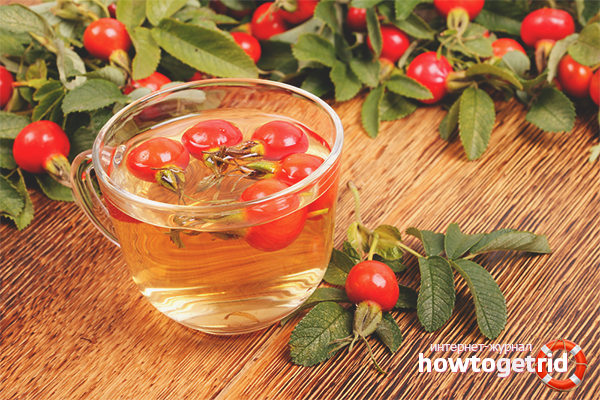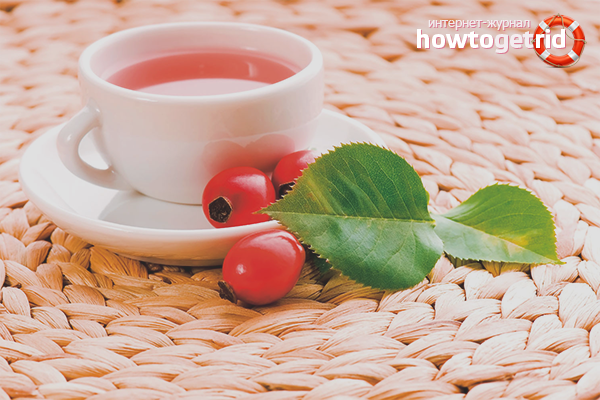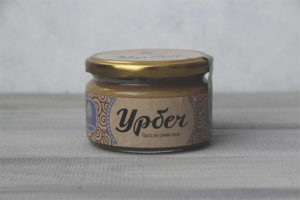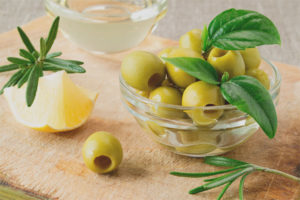The content of the article
In summer and autumn, far-sighted people begin to prepare for winter - they do conservation, carry out minor repairs, and prepare the apartment for the cold. But the main preparation for winter is strengthening immunity. To survive the season of flu and colds without complications and frequent illnesses, you need to strengthen the body's defenses in every possible way - to temper, eat fruits and vegetables, move more, be in the fresh air. And, of course, drink various natural immunomodulators. One of the most powerful and effective is the rose hip. In this article, we will talk about the useful and medicinal properties of rose hips, contraindications and methods for the proper preparation of a decoction.
Useful properties of rose hips
Rosehip received the greatest value due to the high content of vitamin C in its composition. Rosehip has tens of times more ascorbic acid than currants, raspberries, kiwi and lemon. In addition, rosehips are rich in flavonoids, carotene, tannins, pectins, organic acids. Rosehip contains vitamins such as B1, B2, B9, K1 and vitamin E. The product also contains minerals - iron, potassium, calcium, manganese. All this makes the dog rose an indispensable source of health and longevity. Let's try to figure out exactly how rose hips affect the human body.
Due to the large amount of ascorbic acid, wild rose is considered a real vitamin bomb. This is a great way to maintain immunity, accelerate recovery from colds and flu, get rid of vitamin deficiency, and recover from serious illnesses. Rosehip can be drunk often - for treatment and prevention.
Rosehip is very useful during pregnancy, it is not only effective, but also a safe way to treat colds, a means to strengthen the immune system. Some pregnant women cope with toxicosis precisely with the help of an acidic taste of rose hips.
Rosehip is good for drinking in case of anemia - it stimulates the production of red blood cells and raises the level of hemoglobin in the blood.
Rosehip is very useful for blood vessels - makes them more elastic and mobile, reduces blood cholesterol, improves heart function. The regular use of a rosehip decoction reduces the risk of developing varicose veins.
Rosehip broth has anti-inflammatory, healing and regenerating properties, it gently envelops the walls of the stomach and relieves pain in an ulcer. In addition, the decoction is used in the complex treatment of pancreatitis and gastroduodenitis.
Rosehip broth expands the blood vessels of the brain, which allows you to quickly get rid of headaches.
Scientists have proven that regular consumption of rosehip decoction significantly reduces the risk of cancer.
Rosehip is an excellent diuretic, the decoction eliminates edema and removes unnecessary salts from the body. This greatly facilitates the work of the kidneys.
Rosehip broth perfectly affects the nervous system - calms, relieves stress and depression, fights fatigue. A glass of rosehip broth daily will improve the quality of sleep, rest will become longer and calmer. Just do not drink rosehip before bedtime - you can’t avoid night trips to the toilet.
A large number of antioxidants makes rosehip indispensable for the general condition and tone of the body. After a glass of drunk broth, you will feel vigorous and full of strength.
Rosehip broth is often included in the diet of losing weight. Firstly, a large amount of vitamins is necessary during severe food restrictions. Secondly, a rosehip broth has a very low calorie content.Well, and thirdly, ascorbic acid accelerates the metabolism perfectly, the process of getting rid of excess weight will accelerate.
Rosehip removes toxins and toxins from the body. It is effective for cleansing the liver after alcohol or food poisoning - the broth has an excellent choleretic effect. Rosehip is recommended in the rehabilitation period after chemotherapy and taking other serious drugs. Rosehip broth is often given in hospitals for the speedy recovery of the body.
Organic acids, which are part of rose hips, help improve the functioning of the stomach and intestines. The broth increases appetite, prevents the formation of constipation.
This is not a complete list of the useful and healing properties of rose hips. But in order for the broth to be truly medicinal, it should be properly prepared.
How to cook rose hips
Rosehip broth is best prepared in a thermos, the water should remain warm for a long time so that the medicine turns out to be as effective as possible. Three tablespoons of dried or fresh rosehips should be poured with a liter of boiling water and cover tightly. You can’t boil wild rose on an open fire in any case - at excessively high temperatures, vitamin C is completely lost, the drink will become useless. Rosehip broth will be ready in 6-8 hours, so it is best to brew it for the night. In the morning, the dog rose should be filtered and drunk instead of tea. After all, the drink is not only useful and valuable, but also very tasty. For sweetness, you can add a little sugar or honey to it.
You can speed up the process of cooking rose hips by purchasing powdered product. Such a dog rose can be found on store shelves or in pharmacies. Ground rosehips are like tea bags. However, do not blindly trust the manufacturer, you can not be completely sure of the quality of the raw materials. That is why it is better to cook a decoction of whole rose hips yourself.
Such a long cooking time makes it necessary to use a more convenient product that is always at hand - this is alcohol tincture. To prepare it, you need a bottle of dark glass - it should be filled with rose hips, pour alcohol and leave for 3 weeks in a cool place. Now, when you need treatment or restoration of vitality, you do not have to wait half a day when the broth is prepared. Just take the tincture out of the refrigerator, dissolve 20 drops in a small amount of water and drink it. The effect of such a medicine is no worse than that of a decoction. You can store tincture in the refrigerator for up to three months.
Outdoor use of rose hips
Very often a rosehip broth is also used in cosmetology. Based on it, masks are prepared, caring lotions and tonics for the skin. Rosehip makes the skin moisturized and velvet, relieves inflammation, fights acne and black spots. A large number of antioxidants and ascorbic acid in wild rose allows you to use the product as a tool for mature and aging skin. Regular washing with a rosehip decoction allows you to tighten the skin, make it more elastic and smooth.Organic acids in the composition of rose hips favorably affect oily skin, inhibiting the activity of the sebaceous glands. Rosehip helps to get rid of fat content and hair - it makes them smoother, stronger, crumbly and shiny. With regular rinses with a rosehip decoction, you can get a gentle chestnut shade of hair. Rosehip extract is part of many professional shampoos, creams and balms.
Contraindications for dogrose
No matter how useful the rosehip broth, it should be taken with caution. The most important thing is that you can’t drink rosehip without measure, an overdose of the decoction can lead to nausea and vomiting. Adults are allowed to drink no more than one glass of drink per day, children - no more than half a glass. Here are some more warnings you should be familiar with.
After consuming a rosehip decoction, thoroughly rinse your mouth with water or brush your teeth. Organic acids in rose hips can deposit on teeth and corrode enamel. In addition, the rosehip has a fairly pronounced pigment, which can ruin a snow-white smile.
In the presence of any problems with blood circulation (for example, thrombophlebitis), it is better to refuse rose hips.
With increased acidity of the stomach, a rosehip decoction should also not be used.
Rosehip lowers blood pressure, it is useful for hypertensive patients. But if you initially have low blood pressure, you can’t drink the drink.
If you feel bloated after consuming a rosehip decoction, you have a rash or other allergic reaction, it is most likely an individual intolerance, you should completely refuse the drink in this case.
Rosehip is the first shrub that people began to plant for decorative purposes. And this is not surprising - the flowers of wild rose are very delicate and beautiful, and their aroma captivates everyone around. Later, a person noticed that unusual red fruits have a beneficial effect on the body, a drug of them helps to recover much faster. Today in the world there are a huge number of species and varieties of this plant. And each of them has a powerful medicinal effect. Use the gifts of nature, drink a broth of wild rose and take care of your health!
Video: how to make a rosehip decoction












Submit